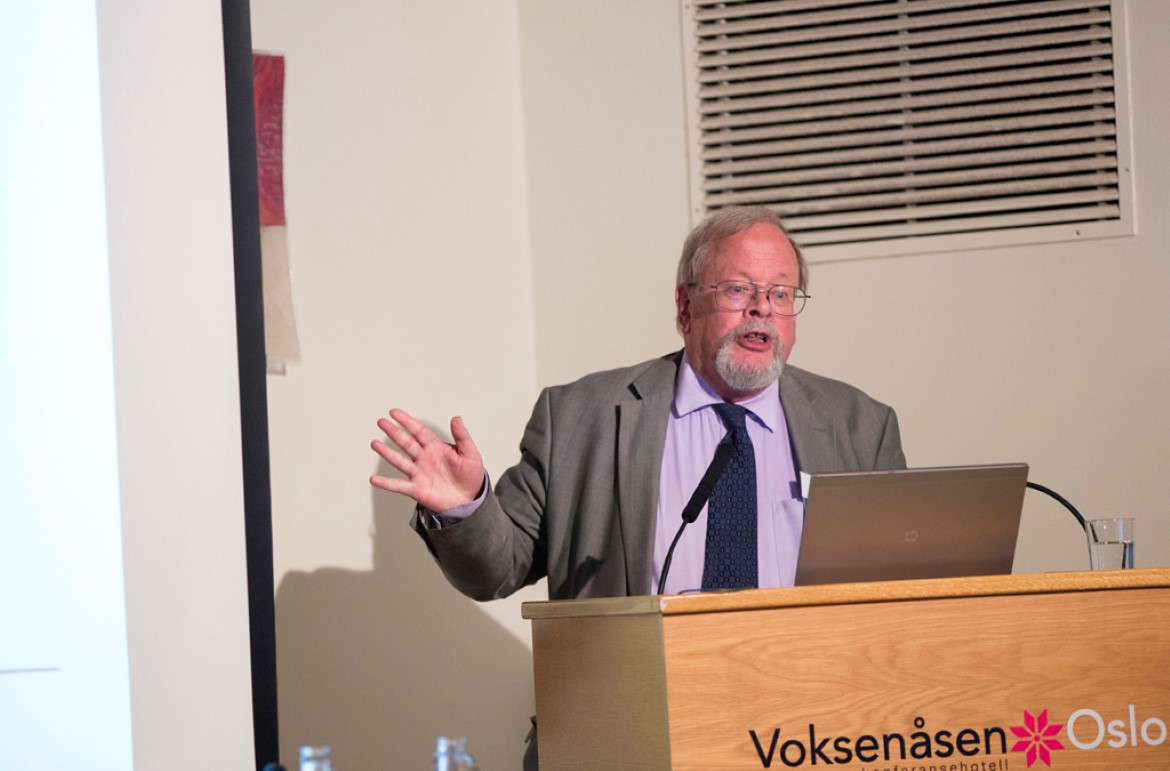
Will good governance cure «the resource curse»?
Is the current emphasis on better governance working as an antidote to the effects of the resource curse? Paul Stevens posed this question at the Oil for Development (OfD) 10 year anniversary last October.
Stevens is a distinguished fellow and professor in the Energy, Environment and Resources department at the English think-tank Chatham House. He was invited to OfD’s anniversary celebration to talk about his findings in the research paper, The Resource Curse Revisited, published in 2015.
Lack of diversity
In his presentation, Stevens challenged the prevailing view of how to overcome «the resource curse». He asserted that we cannot simply dismiss the problem by appealing to good governance.
Instead of asking «why did extractives have a negative effect on the rest of the economy?» he asks us to ask «why didn’t extractives have a more positive impact on the rest of the economy?»
Stevens reminded the audience that revenues from exhaustible resources are not income, but simply a reshuffling of the national portfolio of assets. Diversifying the national portfolio by investing in new assets would avoid dependency on one single resource, he stated. This may be especially critical today, with low oil-prices and a global shift towards renewable energy.
Finding the right pace
Stevens highlighted the need for a country to adjust it's pace in developing a petroleum sector. There may be reason to speed the process up, but generally, the paper finds that slowing down the pace of development can be critical for building institutional capacity. This will also allow time for economic linkages to form. This is necessary for diversification.
Nevertheless, unrealistic expectations of a rapid and radical economic transformation frequently follows the discovery of petroleum, putting pressures on government to proceed hastily.
«Why Norway is a nuisance»
The paper includes a section with the captivating title «Why Norway is a nuisance». Stevens commented on this claim – to a round of muffled laughs from the audience.
The claim states that the conditions Norway had when the country discovered oil - offshore competencies, a functioning democracy and high levels of education in the population - are conditions not easily reconstructed by developing countries.
- The only way Norway’s experience can be replicated is to start with 4,5 million Norwegians. Unfortunately, many policy-makers fail to grasp that basic reality, Stevens pointed out.
No glove fits all
The research paper’s bottom-line is that there is no universal set of «best-practice rules» for how to manage a country’s natural resources.
Perhaps there is no correct answer. But what is certain, is that the planning of resource development requires a fundamental rethinking.
You can read the whole research paper by downloading The Resource Curse Revisited from Chatham House.
